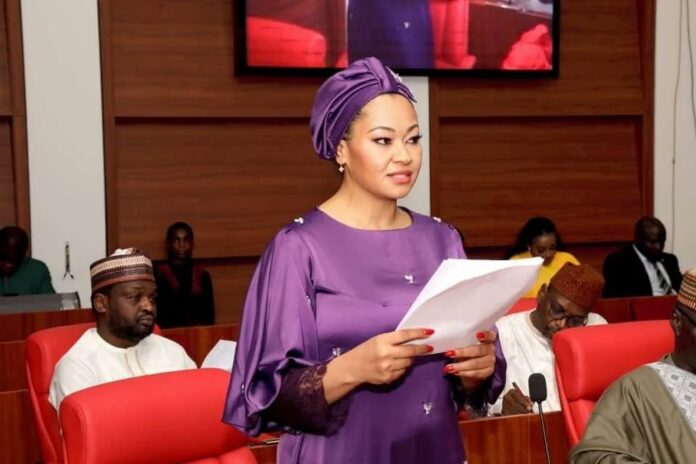A prominent Gambian lawmaker, Hon Fatoumatta Njai, has issued a strongly worded appeal to Nigeria’s Senate, demanding the immediate reinstatement of Senator Natasha Akpoti-Uduaghan, whose suspension has stirred regional and international concern.
Njai, who is the Chairperson of The Gambia’s Gender and Children’s Welfare Committee, a former ECOWAS Parliament member, and current Pan-African Parliament representative, warned that the continued exclusion of Akpoti-Uduaghan after a court judgment overturning her suspension undermines the rule of law and Nigeria’s democratic credibility in West Africa.
“Today it is the distinguished Senator Natasha Akpoti-Uduaghan; tomorrow it could be me,” Njai wrote in her letter dated 9 September 2025 to Nigeria’s Senate President. “The Senate should be seen to obey the courts. In law, one must obey orders first, then challenge them if necessary.”
Citing the July 4 ruling by Justice B.F.M. Nyako, who found a six-month suspension “excessive and overreaching” because it prevents a senator from fulfilling constitutional duties under Section 63, Njai condemned the Senate’s refusal to admit Akpoti-Uduaghan on July 22, weeks after the suspension lapsed.
She argued that extending the punishment beyond six months is a “total affront to the rule of law” and an attempt to silence dissenting voices.
“Leadership is not about silencing voices—especially those who dare to speak truth with courage and integrity,” she said. “Senator Natasha represents not only her constituents but the hopes of millions of women and youths across Nigeria and beyond who believe in justice, transparency, and equal representation.”
Njai called on Nigeria—ECOWAS’s largest member state—to set a democratic example for the region by respecting its judiciary and upholding constitutional order.
“Justice delayed is justice denied,” she stressed. “Nigeria needs all its voices at the table, especially those who challenge the status quo. Senator Natasha must be allowed to resume her duties immediately without further delay.”
Her intervention amplifies growing pressure on the Nigerian Senate from civil society, regional peers, and international observers who see Akpoti-Uduaghan’s prolonged suspension as a test of Nigeria’s commitment to democratic norms.

